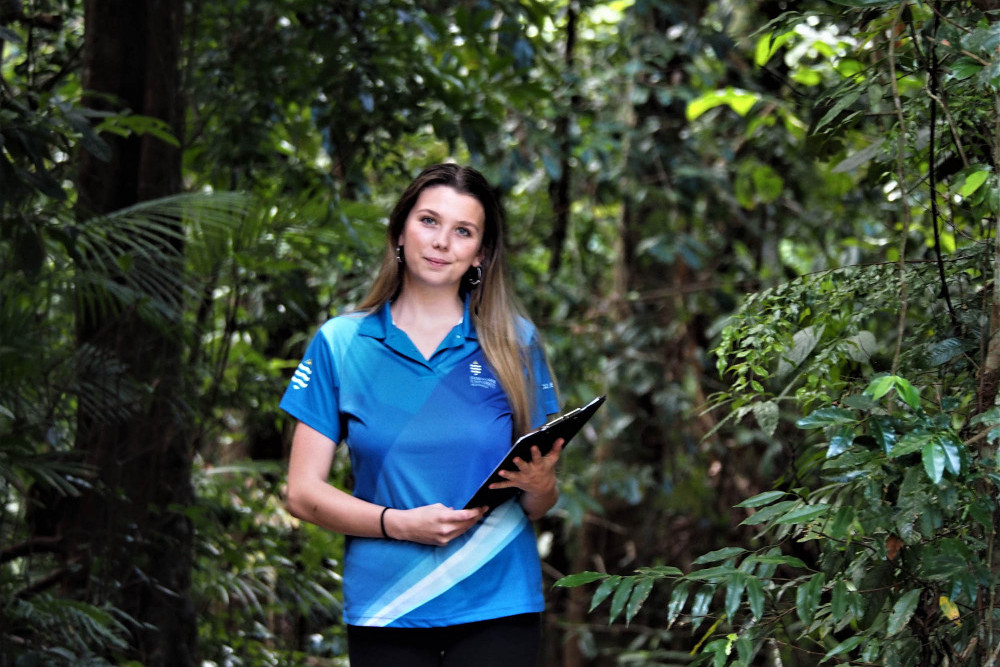Community
6 August, 2022
Student’s survey on cassowary encounters in Mission Beach
HAVE you had experiences with cassowaries on roads in the Mission Beach region?

India Marshall would love to hear from you to create a missing link in data about driver safety and the endangered southern cassowary.
The James Cook University student is speaking with people who have had collisions, near misses or other encounters with cassowaries on our roads for a new study designed by the university, CSIRO, Terrain NRM and the Cassowary Recovery Team.
The study wants to understand better how to prevent more incidents.
There have been 22 recorded cassowary strikes over the last two years, many in the Mission Beach area.
“We’re being told there is stigma around incidents like this but talking about it is the best way for us all to learn more about how to improve things,” Ms Marshall said.
“Cassowary conservation groups and road managers have been working on the issue of road strikes in Mission Beach for many years.
“However, understanding the cassowary and vehicle traffic interactions has previously been limited by a lack of information from drivers.
“We’re hoping to bridge this gap by creating an anonymous space where people can share their untold stories.”
Ms Marshall will interview people who drive in the Mission Beach area for the next couple of months.
Terrain NRM’s Tony O’Malley said the goal was to fill gaps in information about cassowary strikes.
“In the past, the response has been to put up more signs, change the speed limit or a section of road design,” Mr O’Malley said.
“This project will give people a chance to confidentially get their story out, to increase our collective knowledge and ability to come up with actions that work for people and cassowaries.
“We are looking for community-based solutions. And hearing from people involved in incidents will help, as is hearing from other people who’ve been driving the roads over a long period to find out what techniques they believe have helped to avoid a cassowary strike.”
Results from the new study will be compared with more than 20 cassowary vehicle interactions captured on roadside cameras at known ‘hotspots’ in a joint CSIRO, Transport and Main Roads, Terrain NRM and Cassowary Recovery Team project.
The roadside cameras do not identify drivers but will give insight into actual driver behaviour compared to behaviours recalled by interviewees.
To get in touch with India for a confidential interview, phone 0499 834 743 or email india.marshall@my.jcu.edu.au
The Australian Government funds this project.


